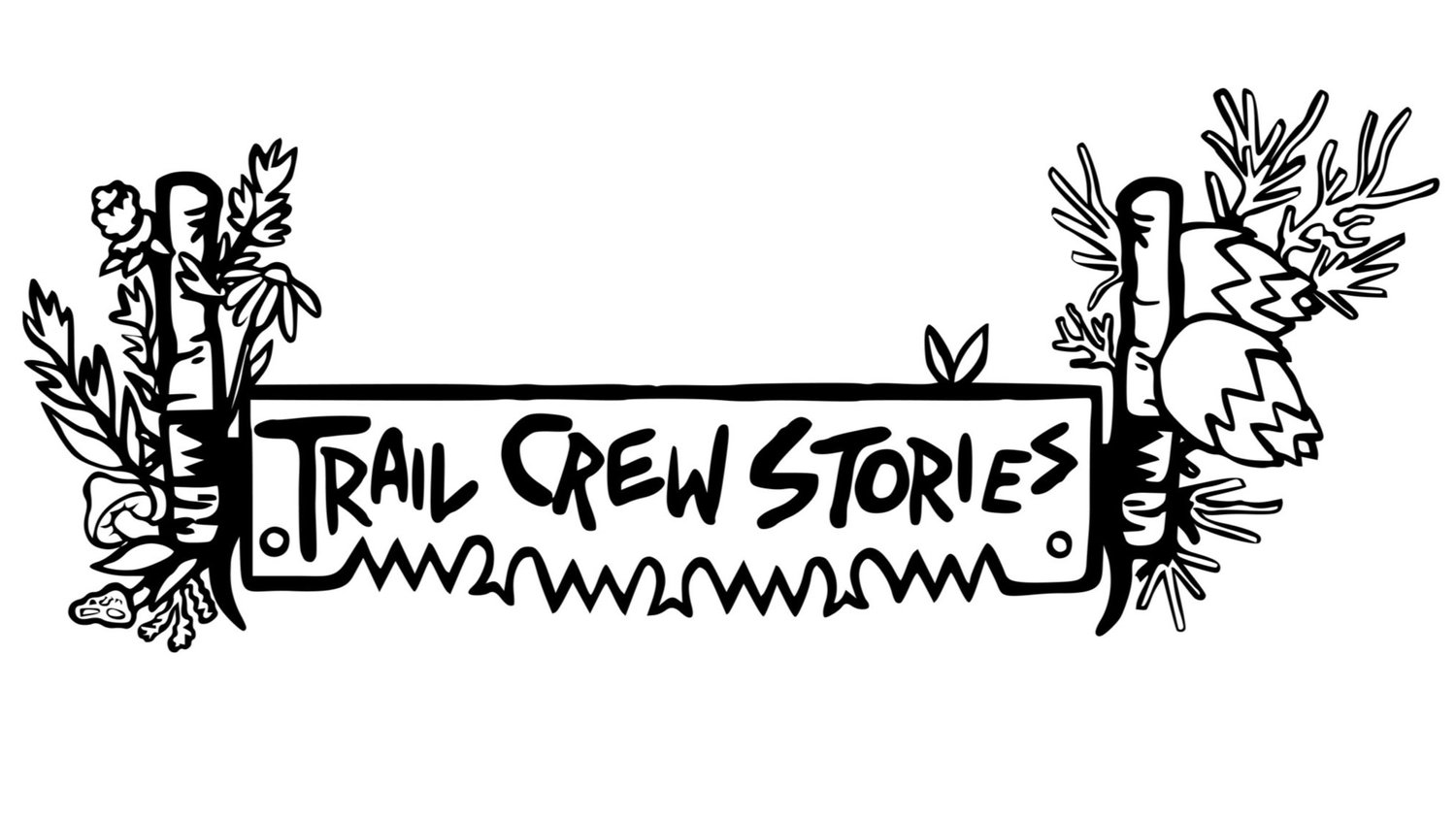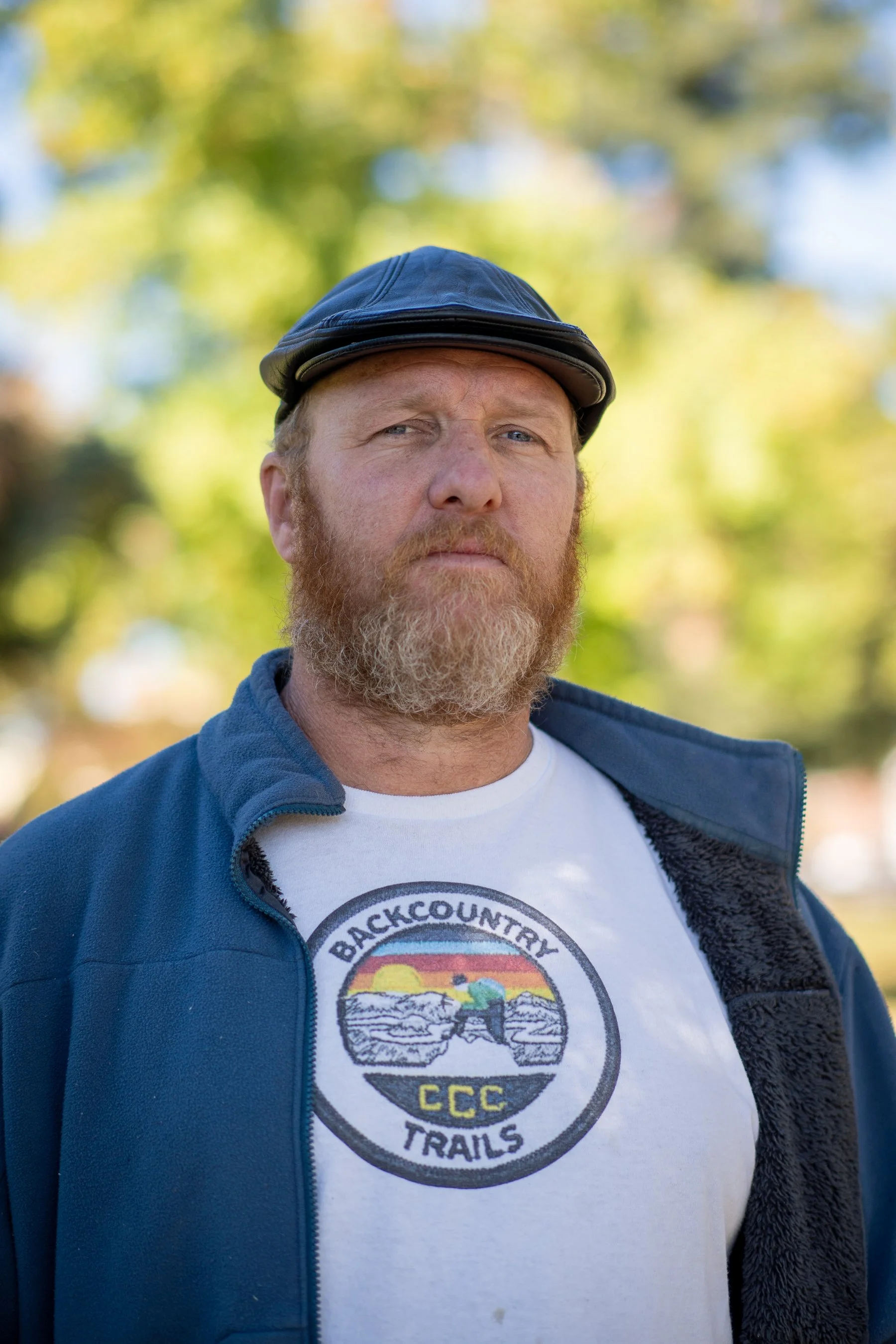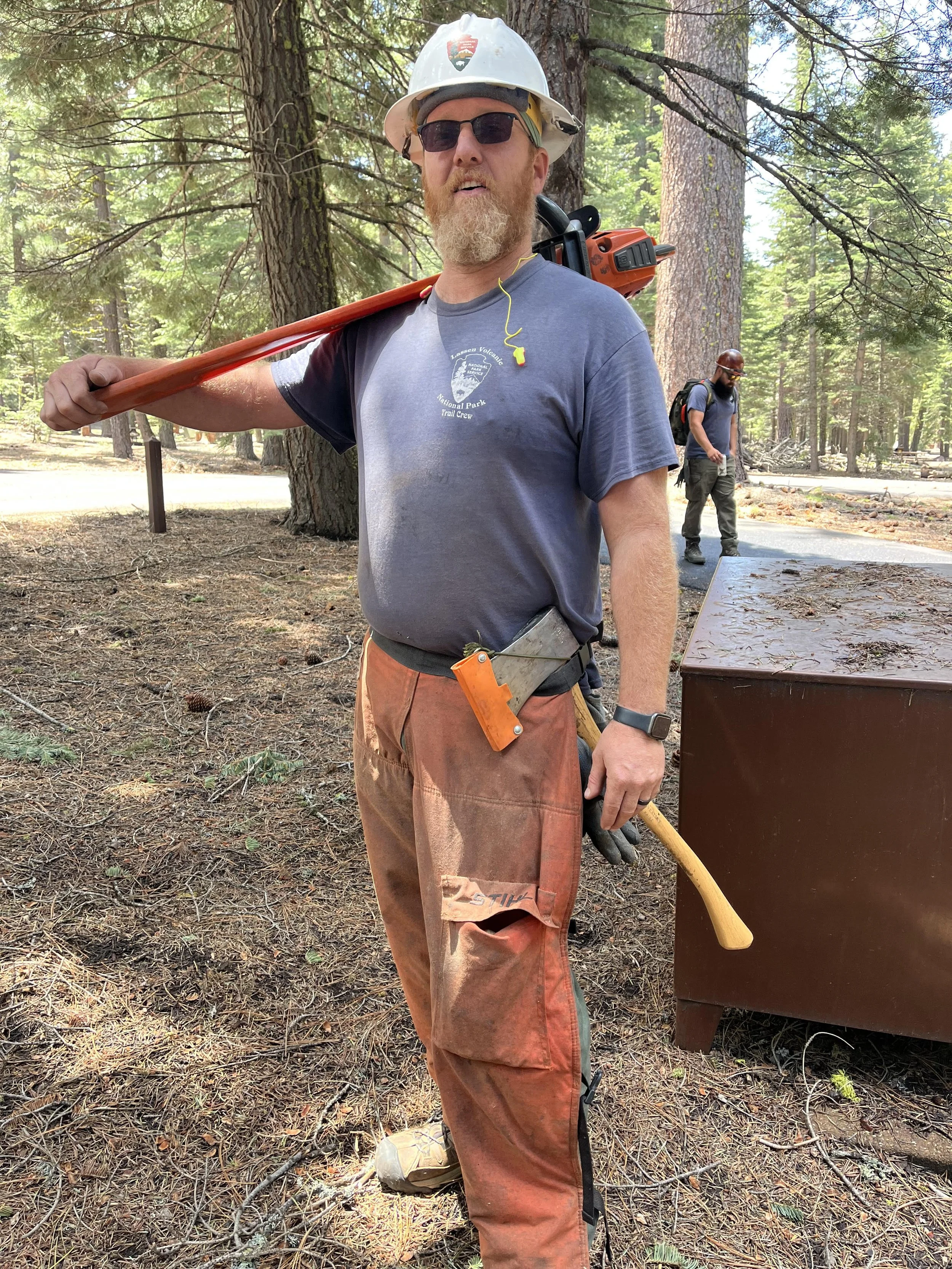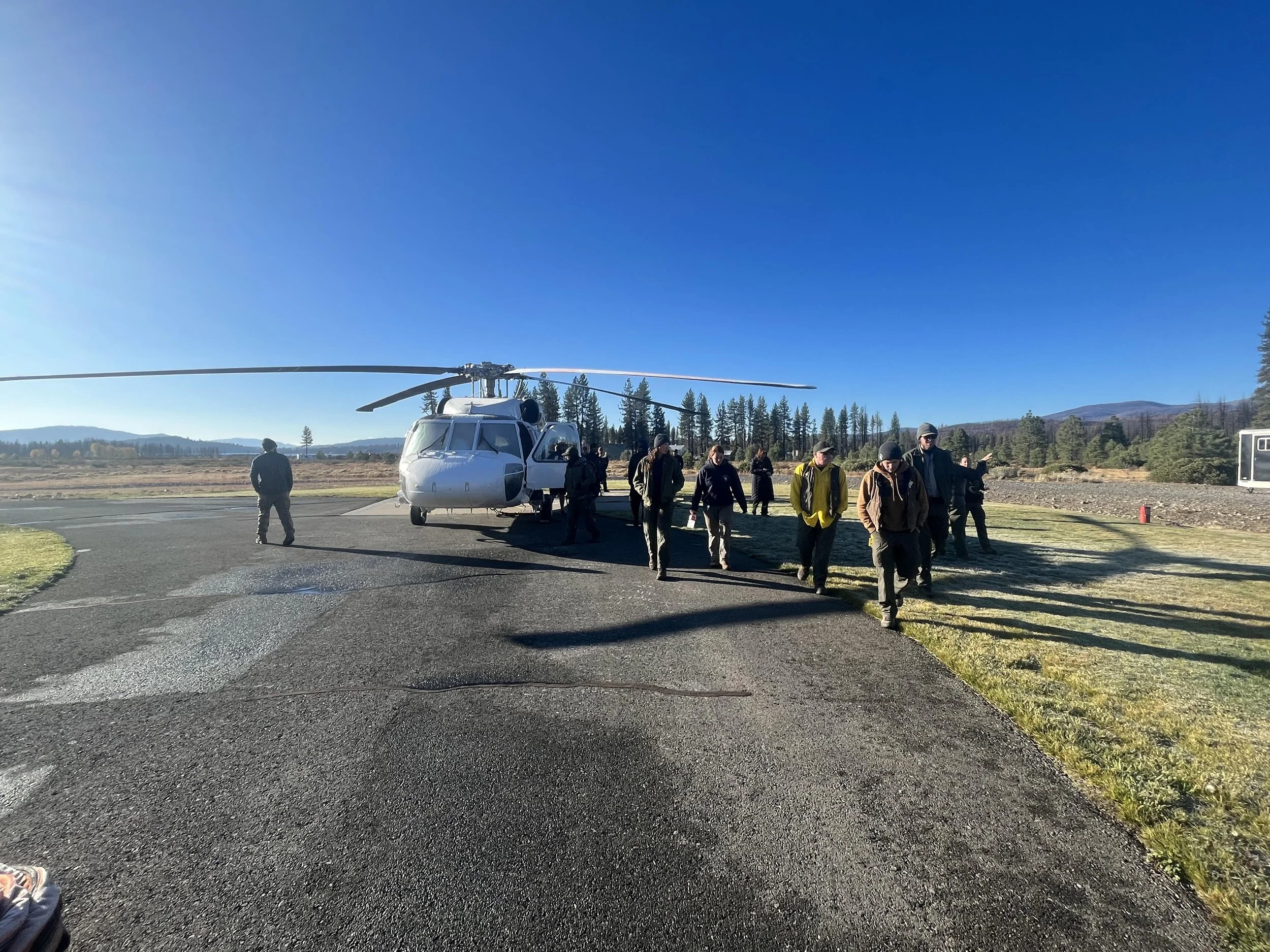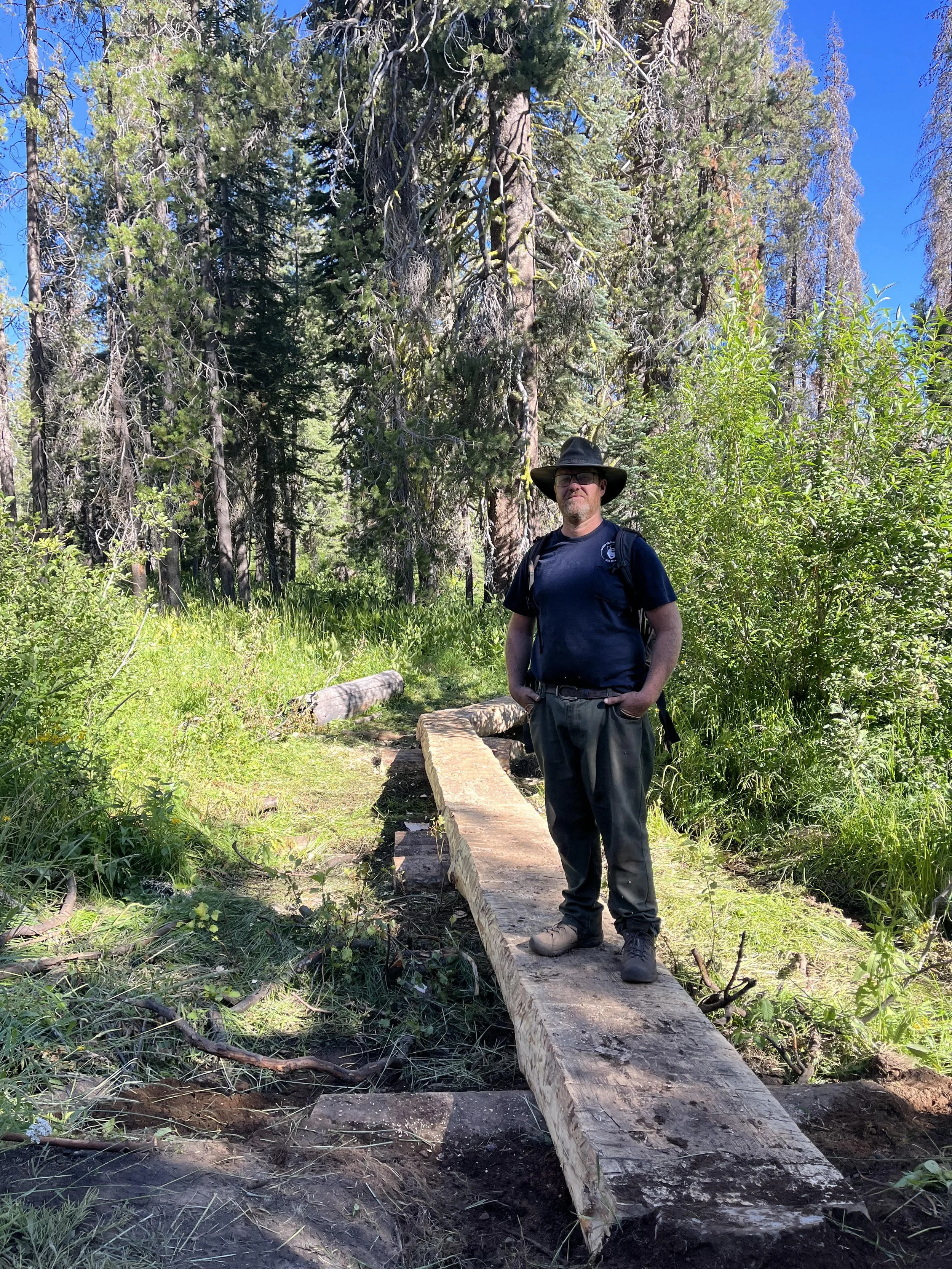Tracy McClelland: “Trails is the best therapist we have”
“Tracy McClelland is one of the best crew leads I’ve had. You should talk to him,” Hannah Huscher told me when we met just outside of Lassen Volcanic National Park. So the next morning, I found myself in a lively cafe in Red Bluff, California, sitting across from Tracy.
Tracy spoke chattily and candidly about his life and his journey into trailwork. It quickly became apparent that his energy was not from the cups of coffee we were downing, but more from his passion for trails.
Tracy McClelland: “When I was 25, I was working in a fiberglass plant. I got shot off a septic tank. I broke my leg and the doctor told me I wasn’t going to be able to walk right. So of course, I take that as a challenge. I started backpacking every weekend.
Later that year, I found myself on unemployment for the first time. I ran into a friend from high school who had just done the CCC Backcountry trail program. He said he lived out of a backpack and had mule trains supply him for five and a half months in the backcountry of Yosemite. It sounded amazing.
I was 25 turning 26, and you have to submit your applications before you turn 26. So I put all my energy into making the best resume I can and I hand deliver it to the director of the program, Carlson Hubbard.
I give him my resume, and he tells me, ‘I can't talk to you right now, maybe later.’
So I sit there and wait. About three hours later, I'm still sitting there. He’s like, ‘Oh shit, you're still here?’ He interviewed me and accepted me into the program.
McClelland in the CCC Backcountry Program.
Image courtesy of Tracy McClelland
I went to the Inyo National Forest and it was life changing. At that time, I just figured I was going to do a season or two, but I just kept coming back.
In 2011, I was in the Shasta-Trinity National Forest. In 2012, I got my first gig with the Park Service in Fossil Butte National Monument in Wyoming. In 2013, I went to Sequoia National Park, in the backcountry of the Kaweah. In 2014, I worked in the Kern District
In 2015, I moved to Lassen and have been here ever since. In 2019, I got a work lead position.
Image courtesy of Tracy McClelland
We were only using crosscut saws back then, dropping trees and everything. The Dixie Fire changed that. This year, we've done everything with chainsaws.
Personally, I prefer the crosscut. It keeps a large crew—allows us to have ten plus people. If we go back to chainsaws, we're gonna lose a lot of people; it's not gonna be necessary to have a bigger crew.
Image courtesy of Tracy McClelland
I think it's important that the Park Service show that it can follow the Wilderness Act, that we can maintain the forest with the least invasive tool necessary. To me, it's a way of keeping that history alive. It slows us down a lot, and it allows us to really contemplate what we're doing to the land.
When we log the Nobles Emigrant Trail, you log it for a wagon. I want people to walk this and realize that there used to be wagons coming through here. It's a pain in the ass, and it makes way more work, but I think it's super important for what we're doing. Older folks who come every once in a while, we want them to see it exactly how it was 50 years ago when they visited for the first time.
We put in a lot of work to make sure that it looks the same. If we are doing our job right, it looks like nothing has changed, and that’s the point.
Image courtesy of Tracy McClelland
In my head, there’s this big stone arch bridge that will one day exist and I will put it there. But I think it’s more important to not make monuments to ourselves, to remember that the mission is to serve people.
My goal in working for the park, in working trails, is to make sure that we open up the land. Cause it's everybody's.
When you talk to Mike [McFadden], it's something he definitely beat into me. The land belongs to everybody, we're just the stewards.
McClelland’s crew prepares to haul in two glue-lam bridge stringers via helicopter in Lassen Volcanic National Park.
Image courtesy of Tracy McClelland.
I truly believe that trails are the best therapy for the people of our country. People would do better if they took a heavy backpack with all the shit that they believe they need in the world and walk out and deal with themselves. They can't get mad at somebody else if they put their tent up and it fucking floods, or if they didn't have enough salt or whatever to season their food, They’ll think, oh shit, why did I bring five pairs of pants? I don't need five pairs of pants. I need one pair of pants and maybe an extra to change into.
On my first backpacking trip, I was in the [Three] Sisters Wilderness in Oregon. I went two and a half miles and I took 110 pounds worth of shit. I brought in like five pounds of oranges, two gallons of water. I brought all this shit. I brought two grates to cook on, a couple of axes to throw around at camp. When I got to camp, I was so tired that I couldn't do anything. I set my shit up, passed out, woke up the next day. I'm like, holy shit, I have to carry all this crap out of here. Never did that again.
There’s some balance between the ultralight and too much. You gotta figure it out. I can't tell you what you need to be happy. You'll figure it out, or you won't. It's each person's deal.
Image courtesy of Tracy McClelland
I never had a lot of money growing up. One of the things that got me into backpacking in the first place is that you can’t just pay money. You can't throw money at the problem to get your ass up there. You physically have to grab your shit and you have to walk over it. Everybody has to pay the same fucking thing. Which is not money. It's physical exertion, getting your ass up to where you want to be. I love that. There's no shortcut to that. And I love that you can get there and you have to get your ass back out. Whatever plan you come up with, you have to see it through, which makes people accountable.
Trails is the best therapist that we have.”
Mike McFadden has always said, “I don’t want to see your resume, show me your hands.” Tracy McClelland shows his “trails resume”.
